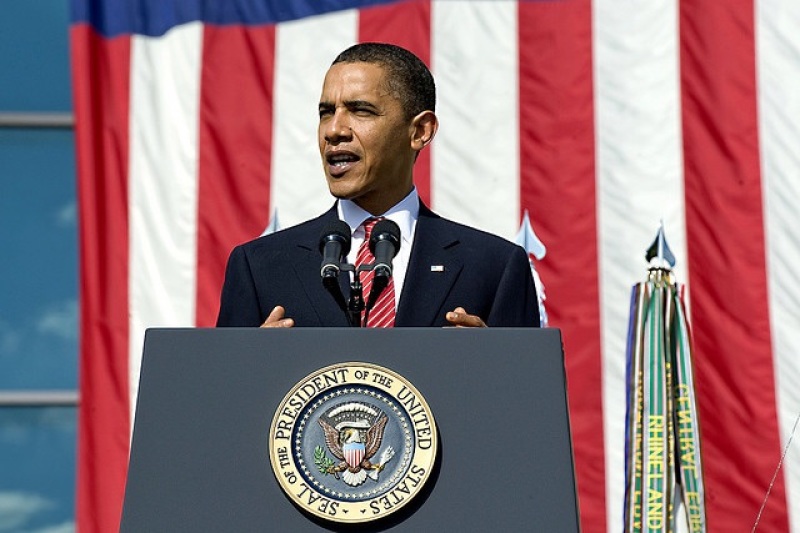

President Barack Obama speaking at a memorial ceremony in Fort Hood on November 2009.
President Obama reduced the sentences of 46 non-violent drug offenders on Monday, July 13, as a part of his plan to decrease prison population and to change the policies that disproportionately affect African Americans and Latinos. This doubles the number of clemencies he has granted, with the total now at 89, the largest number since President Johnson's 226.
"These men and women were not violent criminals," said Obama in a Facebook video posted Monday. "I believe that at its heart America is a nation of second chances. And I believe these folks deserve their second chance."
In order to be eligible for clemency, the prisoners must have served 10 years at the least, had a good prison record, and must not have been convicted of a violent crime. Most of the 46 people whose sentences were commuted had been convicted of drug crimes, largely those related to cocaine trafficking, with 14 of those 46 sentenced to life in prison. Had the drug offenders been convicted under current guidelines, they would have received much more lenient punishments than the old laws under which they had been convicted.
"Their punishments didn't fit the crime, and if they had been sentenced under today's laws, nearly all of them would have already served their time," said Obama in a video on the White House website.
In a letter Obama sent to the 46 prisoners who were granted clemency, he wrote, "I am granting your application because you have demonstrated the potential to turn your life around. Now it is up to you to make the most of this opportunity. It will not be easy and you will confront many who doubt people with criminal records can change. Perhaps even you are unsure of how you will adjust to your new circumstances. But remember that you have the capacity to make good choices."
In a speech given at a convention hosted by the National Association for the Advancement for Colored People (NAACP) for U.S. civil rights organization, Obama laid out his plans for criminal justice reform. On Thursday, he will make a visit to the El Reno Federal Correctional Institution, the federal prison in Oklahoma, making him the first-ever sitting president to do so. It is anticipated that the President will meet with inmates during his trip to the prison. These events and the commutations of the prison sentences are a part the Obama administration's more broad-scaled attempt to revise the structure of the criminal justice system.
The 46 prisoners' sentences are set to expire on November 10, 2015, the date they will be released.



















